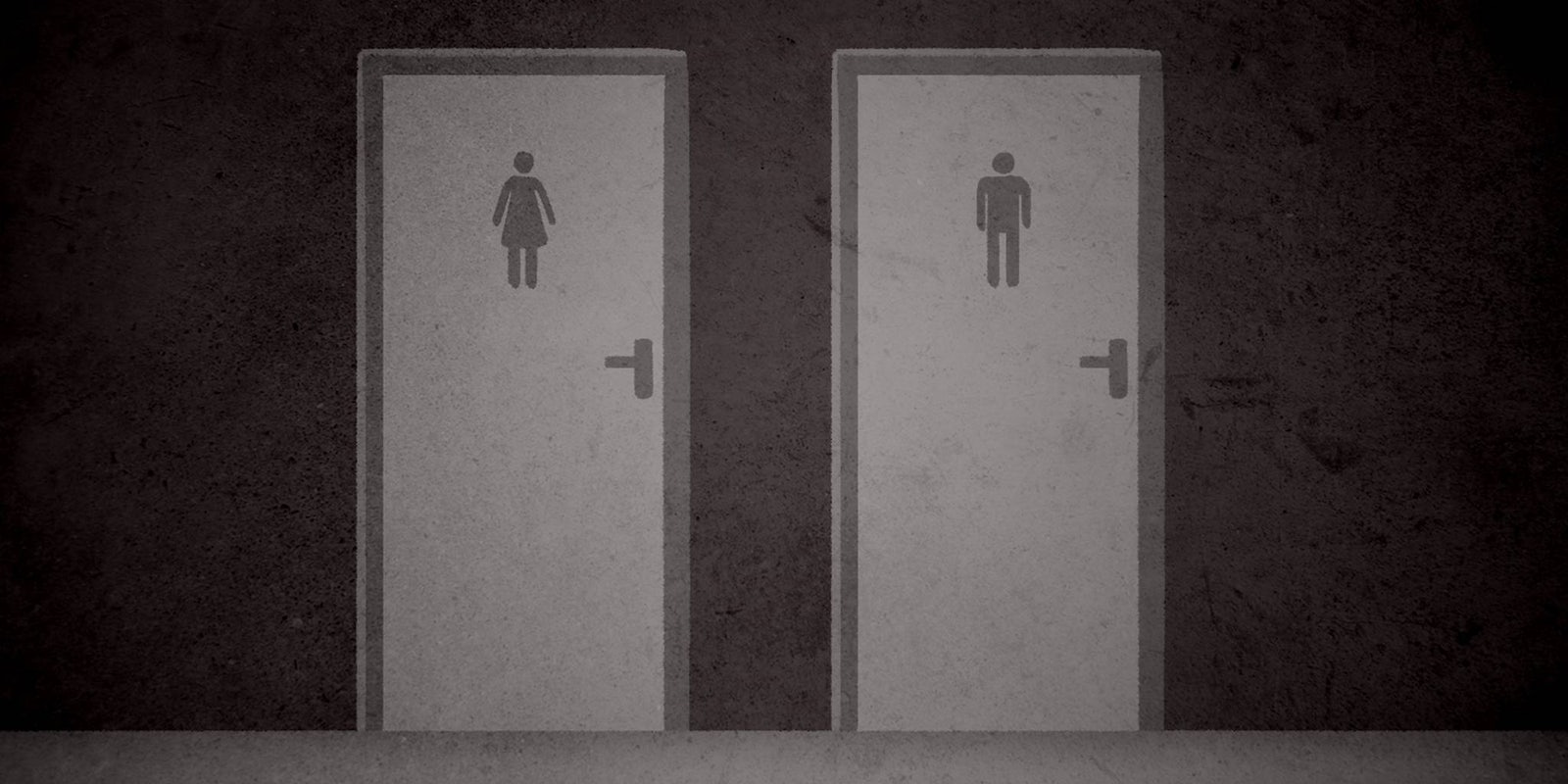They came to slay, and their target is North Carolina’s House Bill 2.
Early Monday morning, protestors gathered at the North Carolina state legislature in Raleigh to deliver 20 boxes of petitions signed by residents who want to see the controversial law, commonly known as HB2, repealed. But they weren’t just there to drop off a reported nearly 190,000 signatures—the protestors spoke out on the statehouse steps, putting a human face to the impact of the anti-LGBT law.
When North Carolina lawmakers passed HB2 in a special one-day session on March 23, it not only mandated that all state residents use bathrooms and similar facilities that matched their gender at birth, it also overruled all local city and municipal non-discrimination ordinances and prevented localities from raising the minimum wage. Passage of the bill appears to have come in response to a local Charlotte, North Carolina, law that allowed transgender residents to pick the bathroom they use based on their gender identities.
Though HB2 enabled sweeping discrimination, it became known as an anti-transgender “bathroom bill.”
Rally attendees used hashtags like #RepealHb2, #FreeFromFear, and #WeCame2SlayHb2 to post photos and videos of the event, alongside the longstanding hashtag #WeAreNotThis, which was instigated by state locals the day after North Carolina Gov. Pat McCrory signed the bill into law.
Delivering more than 112K+ @ACLU @Change signatures demanding NC #RepealHB2 #WeAreNotThis pic.twitter.com/JtVsOdUIG9
— ACLU of North Carolina (@ACLU_NC) April 25, 2016
“Transgender people are a vital part of our communities, our families, our workforce,” said 25-year-old organizer Micky Bradford, who identified herself as a black trans woman and native of Fayetteville, North Carolina. “We just want to be able to live and work alongside of everyone else.”
Bradford, an organizer with a campaign coalition between the Transgender Law Center and SONG (Southerners on New Ground), became famous for vogueing in the streets of Raleigh the night that HB2 passed—which she called “a form of cultural resistance in our community.”
Her speech, along with others, was captured on video by Raleigh’s WRAL.
“Our resistance was not born in the statehouse,” Bradford said into a megaphone. “It was born in the streets. They called our names, so we answered.”
Those most harmed by this law are here today and our voices will be heard!@ignitekindred @KindredNC #RepealHB2 pic.twitter.com/jz8HfEwH4w
— TheTaskForce (@TheTaskForce) April 25, 2016
Joining Bradford at the podium was a cast of North Carolina’s statewide LGBT advocates and leaders including transgender preacher Rev. Debra Hopkins, Moral Mondays leader Rev. William Barber, North Carolina ACLU director Sarah Preston, Equality NC director and newly inducted state representative Chris Sgro, and others.
“This bill is not about bathrooms. This bill is a lie. This city needs to hear from us!” #WeAreNotThis #RepealHB2 pic.twitter.com/gPtqtDOLDI
— ACLU (@ACLU) April 25, 2016
Two of the speakers were moms; one, a transgender mom named Erica, attacked HB2 for the impression it left on her daughter.
“What kind of message are you sending to my kid? Now you’re messing with my child,” said Erica into a bullhorn, specifically criticizing HB2’s repeal of the Charlotte inclusion ordinance.
“My daughter is standing here w me bc I want her 2 know what it feels like to stand w a group of united ppl.” -Erica pic.twitter.com/ngmxmBPHCw
— SONG (@ignitekindred) April 25, 2016
Another mom named Hope took the podium to state that she was the parent of a trans high school student. She invoked the anxiety that HB2’s anti-trans measures gave parents of trans kids—noting the deaths by suicide of North Carolina trans teen Blake Brockington and Ohio trans teen Leelah Alcorn. Both teens had families who did not support their gender identities and transitions, and their deaths became symbols of the dire need to support transgender and gender non-conforming youth.
“I’m the proud mother of a transgender student. Please keep our children safe and #RepealHB2” -Hope #WeAreNotThis pic.twitter.com/7fmOBaKwMO
— ACLU (@ACLU) April 25, 2016
Also present at the rally were the six plaintiffs in the lawsuit against North Carolina and McCrory. The plaintiffs include two LGBT university employees, a 20-year-old student, a high school junior, and a lesbian couple that was rejected by a fertility clinic due to their sexual orientation after HB2 passed.
Plaintiffs in our lawsuit challenging #HB2 in #Raleigh! #WeAreNotThis #RepealHB2 #NorthCar… https://t.co/NHN8t56i4p pic.twitter.com/N69IOcOvfW
— Lambda Legal (@LambdaLegal) April 25, 2016
After delivering the signatures, a group of protesters began a sit-in in front of McCrory’s office.
#HB2 protesters now beginning sit-in blocking entrance to governor’s office. #ncpol pic.twitter.com/5Di3SRo0MN
— Colin Campbell (@RaleighReporter) April 25, 2016
The fight to repeal the discriminatory state law reached national proportions in the weeks since its passage, with boycotts and cancellations rushing in from corporations, entertainers, sports leagues, and even other state and city governments. On Sunday, a letter signed by over 150 mental-health professionals was delivered to McCrory, urging repeal of the law.
According to the letter, the bill’s discrimination mandate is “in direct conflict with the ethics of our professions.” The therapists, social workers, and doctors referred to LGBT-friendly guidelines set forth by national professional associations, and also expressed concern for their clients.
“Since the passage of House Bill 2,” reads the letter, “we have become increasingly concerned about the wellbeing of transgender individuals in this state. HB2 legitimizes discrimination and has created a climate of fear and confusion.”
Update 12:46pm CT, April 25: McCrory claims the protesters misrepresented the number and nature of the petition signatures delivered to his office.
https://twitter.com/dominicholden/status/724650289970724864
And four state lawmakers have introduced legislation that would overturn portions of HB2.
Here’s the Bill, just filed, that would repeal #HB2. #ncpol pic.twitter.com/UDmTUTZE3m
— Colin Campbell (@RaleighReporter) April 25, 2016
For more information about suicide prevention or to speak with someone confidentially, contact the National Suicide Prevention Lifeline (U.S.) or Samaritans (U.K.). If you need to speak to counselors with experience dealing with transgender issues, contact Trans Lifeline at (877) 565-8860 (U.S.) or (877) 330-6366 (Canada).


